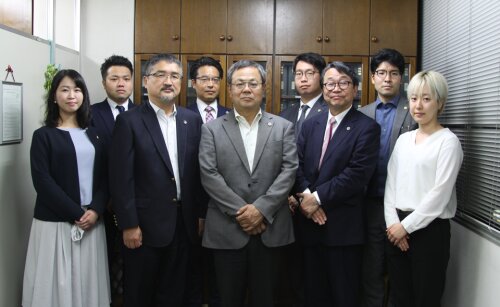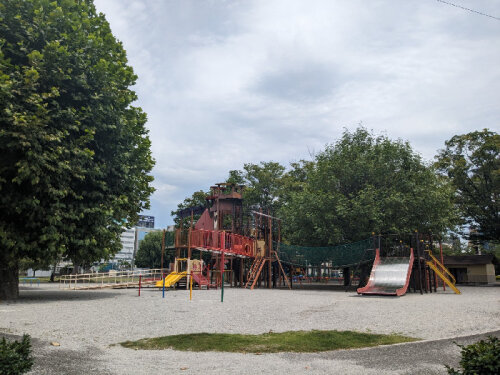Best Family Lawyers in Shizuoka
Share your needs with us, get contacted by law firms.
Free. Takes 2 min.
Free Guide to Hiring a Family Lawyer
List of the best lawyers in Shizuoka, Japan
About Family Law in Shizuoka, Japan
Family law in Shizuoka operates under national Japanese statutes applied by local courts and municipal offices in the prefecture. The main laws are the Civil Code and the Family Registration Act, which regulate marriage, divorce, parental authority, child support, inheritance, adoption, and family registers - known as koseki. Family matters are normally handled by the Family Court and local municipal offices for registration tasks. Many procedures are the same across Japan, but local offices and courts in Shizuoka administer filings, mediation, and enforcement locally, and they can provide guidance in Japanese. If you are a non-Japanese resident, additional steps may be needed for documentation and translation.
Why You May Need a Lawyer
Family matters often involve significant emotional stress and long-term consequences for finances, parental rights, and children. You may need a lawyer when:
- You and your spouse cannot agree on divorce terms, child custody, visitation, child support, spousal support, or property division.
- There are allegations of domestic violence, child abuse, stalking, or criminal conduct that affect safety and custody.
- Your case involves cross-border issues - for example, a foreign spouse, children living in another country, or assets abroad.
- You need help gathering and presenting evidence, calculating fair support amounts, or enforcing court orders when the other party refuses to comply.
- You are considering adoption, inheritance disputes, or changes to parental authority and require precise legal steps and filings.
Local Laws Overview
Key legal aspects relevant to family matters in Shizuoka include:
- Divorce procedures - There are three main ways to end a marriage: mutual agreement divorce by filing a divorce notification at your municipal office, divorce by mediation through the Family Court, and divorce by court judgment. Mutual agreement is the quickest if both parties cooperate.
- Parental authority and custody - Japanese practice typically results in one parent having parental authority and primary custody after divorce. Joint parental authority after divorce is not commonly recognized. Visitation rights should be agreed or ordered, but enforcement can be complicated.
- Child support - Parents have an obligation to provide financial support for children. Courts will set amounts based on child needs and parents financial situations. There is no single national formula, but courts and practitioners use standard guidelines to calculate support.
- Property division - Japan does not automatically treat marital assets as community property. Courts divide property based on contributions to the marriage and to household finances. Documenting income, bank records, and contributions is important.
- Family register - The koseki records births, marriages, divorces, and deaths for Japanese nationals. When you file a divorce by agreement, you notify the municipal office to update the koseki. Non-Japanese spouses may not appear on the koseki but have separate residency records.
- Domestic violence and protection orders - The Act on Prevention of Spousal Violence and Protection for Victims allows victims to seek protection through police and family court. Immediate police assistance and temporary orders can be available in urgent cases.
- Adoption and inheritance - Adoption has formal procedures under Japanese law. Inheritance follows statutory rules when there is no will, with spouses and children as primary heirs. Wills and estate planning can alter default distributions.
Frequently Asked Questions
How do I get a divorce in Shizuoka?
You can get divorced by mutual agreement by submitting the signed divorce notification at your city, town, or village office. If you cannot agree, you can request mediation at the Family Court or file a lawsuit in the district court. Mediation is often required before full litigation for family disputes.
Who gets custody of the children after divorce?
After divorce, parental authority and physical custody often go to one parent. Courts decide based on the child's best interests, living environment, parental capacity, and evidence about who has been the primary caregiver. Parents are encouraged to reach agreements on custody and visitation when possible.
How is child support calculated and enforced?
Child support is based on the childs needs and the parents financial means. Courts and practitioners use guidelines to estimate reasonable amounts. If a parent refuses to pay ordered support, enforcement can proceed through civil enforcement measures such as wage garnishment or seizure of assets, but enforcement can be complex and may require additional legal steps.
Can I get immediate protection if I am facing domestic violence?
Yes. If you are in immediate danger, contact the police. The Family Court can issue emergency protection measures, and there are shelters and support services for victims. Providing medical reports, police reports, or other evidence helps when seeking protection orders and support.
How does property division work when we divorce?
Property is divided based on each party's contributions and financial circumstances. There is no automatic equal-split rule, but courts often aim for a fair distribution. Documentation of bank accounts, real estate records, pension contributions, and household expenses is important to support your claim.
What happens with surnames after marriage or divorce?
Japanese law requires married couples to share one surname. Most couples choose the same surname upon marriage. After divorce, a person can return to their pre-marriage surname by notifying the municipal office. Foreign nationals have separate naming rules depending on their home country and local registration.
How do international issues affect family cases in Shizuoka?
International marriage and custody cases may involve additional complexity - immigration status, cross-border custody, and differing legal systems. International conventions and bilateral rules may apply depending on the countries involved. Seek a lawyer experienced in international family law for such cases.
What records should I gather before seeing a lawyer?
Useful documents include identification, marriage and birth certificates, koseki extracts (if applicable), bank statements, tax returns, pay slips, mortgage and property documents, communication records with the other party, police or medical reports for abuse, and any existing court orders or agreements.
How much does a family lawyer cost in Shizuoka?
Costs vary. Initial consultations may be free or fee-based depending on the office. Lawyers charge either flat fees for specific services or hourly rates. If you meet income and asset requirements, you may be eligible for legal aid provided by the Japan Legal Support Center. Discuss fees and payment plans with any lawyer before retaining them.
Can I change custody or child support after a court order?
Yes, custody and support orders can be modified if there is a material change in circumstances, such as relocation, changes in income, or changes in the childs needs. You will need to apply to the family court and provide evidence supporting the requested change.
Additional Resources
When seeking advice in Shizuoka, these local and national resources can help:
- Shizuoka Family Court and local district courts - for mediation, hearings, and court orders related to family cases.
- Municipal offices across Shizuoka Prefecture - for filing divorce notifications and obtaining koseki certificates or other civil registrations.
- Shizuoka Bar Association - for lawyer referrals and information on attorneys who handle family law matters in the prefecture.
- Japan Legal Support Center - provides legal aid, consultation, and information about eligibility for subsidized representation.
- Child Consultation Centers (jidou sodan-sho) - for child welfare concerns, suspected abuse, and family support services.
- Domestic violence consultation centers and shelters - for emergency assistance, counseling, and temporary housing for victims of abuse.
- Municipal welfare and foreign resident support desks - for non-Japanese residents who need translation help or guidance on administrative procedures.
Next Steps
If you need legal assistance for a family matter in Shizuoka, follow these practical steps:
- Gather documents - Collect ID, koseki copies if applicable, financial records, communication logs, and any evidence of abuse or neglect.
- Assess urgency - If you or your children are in immediate danger, contact the police and seek emergency shelter or protection orders right away.
- Seek initial advice - Contact the Shizuoka Bar Association or the Japan Legal Support Center for referrals and to learn about eligibility for legal aid or free initial consultations.
- Consider mediation - If safe and appropriate, try to reach an agreement through Family Court mediation to save time and reduce conflict. If mediation is not possible, prepare for court procedures with your lawyer.
- Engage a lawyer - Choose an attorney with family law experience in Shizuoka. Discuss fees, timelines, likely outcomes, and strategies before agreeing to representation.
- Plan for the children - Prioritize stability and clear communication about parental responsibilities, custody, and support, keeping the childs best interests at the center of decisions.
Family law matters are often complex and emotionally charged. Getting accurate legal advice early can protect your rights and your familys future. Local courts, legal aid services, and experienced family lawyers in Shizuoka can guide you through each step of the process.
Lawzana helps you find the best lawyers and law firms in Shizuoka through a curated and pre-screened list of qualified legal professionals. Our platform offers rankings and detailed profiles of attorneys and law firms, allowing you to compare based on practice areas, including Family, experience, and client feedback.
Each profile includes a description of the firm's areas of practice, client reviews, team members and partners, year of establishment, spoken languages, office locations, contact information, social media presence, and any published articles or resources. Most firms on our platform speak English and are experienced in both local and international legal matters.
Get a quote from top-rated law firms in Shizuoka, Japan — quickly, securely, and without unnecessary hassle.
Disclaimer:
The information provided on this page is for general informational purposes only and does not constitute legal advice. While we strive to ensure the accuracy and relevance of the content, legal information may change over time, and interpretations of the law can vary. You should always consult with a qualified legal professional for advice specific to your situation.
We disclaim all liability for actions taken or not taken based on the content of this page. If you believe any information is incorrect or outdated, please contact us, and we will review and update it where appropriate.
Browse family law firms by service in Shizuoka, Japan
Shizuoka, Japan Attorneys in related practice areas.









